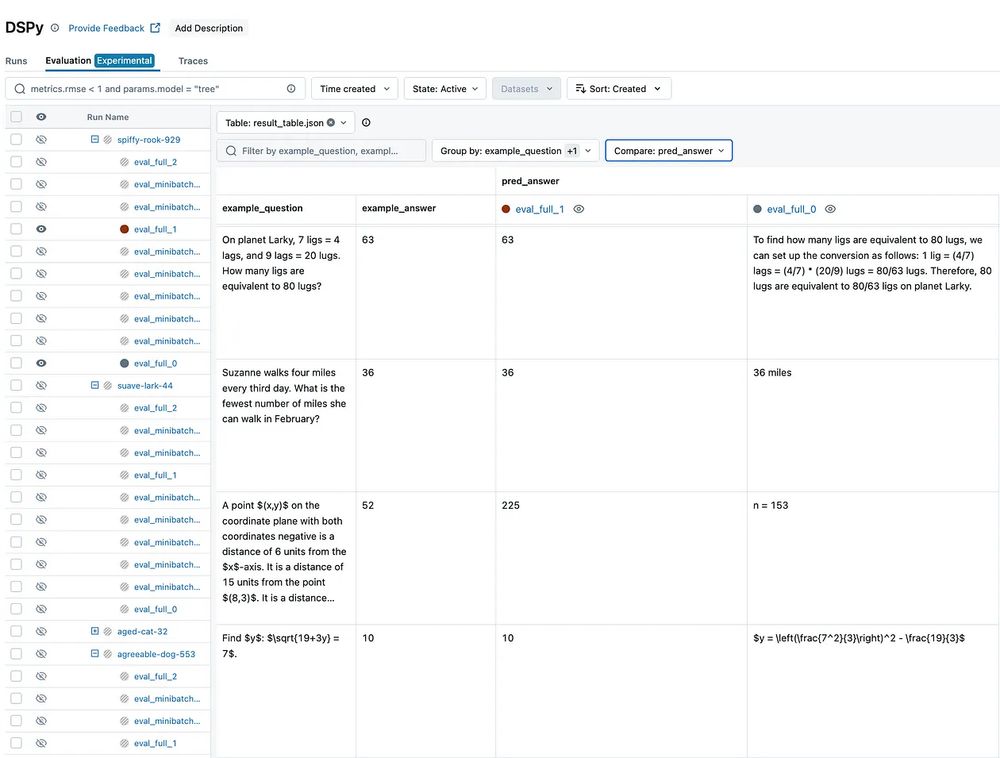Thank you @simonwillison.net
Thank you @simonwillison.net
My notes here: simonwillison.net/2025/Oct/4/d...

My notes here: simonwillison.net/2025/Oct/4/d...


"GEPA: Reflective Prompt Evolution Can Outperform Reinforcement Learning" presents such elegant ideas by a collection of amazing researchers!
Here is a tldr of how it works:
"GEPA: Reflective Prompt Evolution Can Outperform Reinforcement Learning" presents such elegant ideas by a collection of amazing researchers!
Here is a tldr of how it works:
late interaction models do embedding vector index queries and reranking at the same time leading to far higher accuracy
huggingface.co/NeuML/colber...

late interaction models do embedding vector index queries and reranking at the same time leading to far higher accuracy
huggingface.co/NeuML/colber...
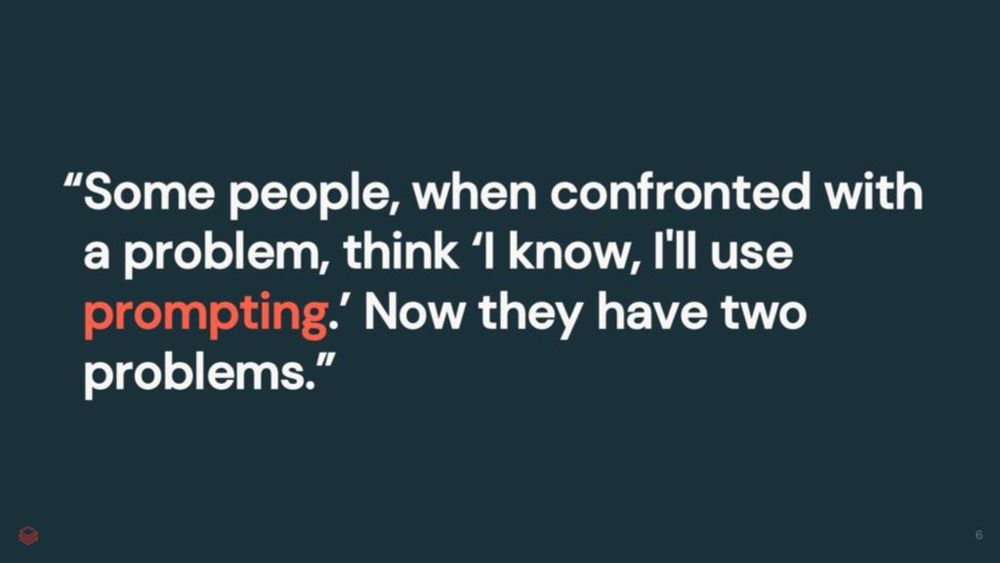
🔗 Register today 👉 lu.ma/mlflow423
Join the global MLflow community for two exciting tech deep dives:
🔹 MLflow + #DSPy Integration
🔹 Cleanlab + #MLflow
🎥 Streaming live on YouTube, LinkedIn, and X
💬 Live Q&A with the presenters
#opensource #oss
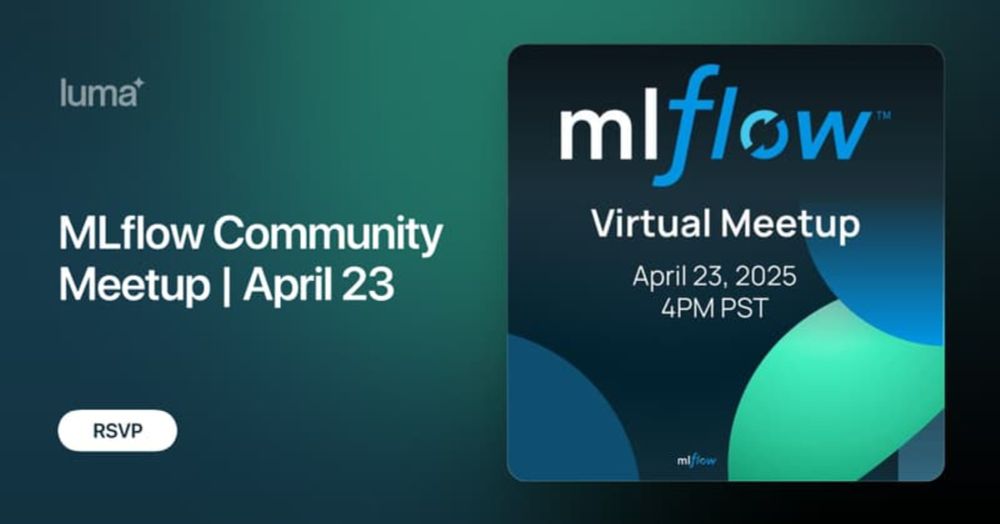
🔗 Register today 👉 lu.ma/mlflow423
Join the global MLflow community for two exciting tech deep dives:
🔹 MLflow + #DSPy Integration
🔹 Cleanlab + #MLflow
🎥 Streaming live on YouTube, LinkedIn, and X
💬 Live Q&A with the presenters
#opensource #oss
#MLflow is the first to bring full visibility into DSPy’s prompt optimization process. More observability, less guesswork.
Get started today! ➡️ medium.com/@AI-on-Datab...
#opensource
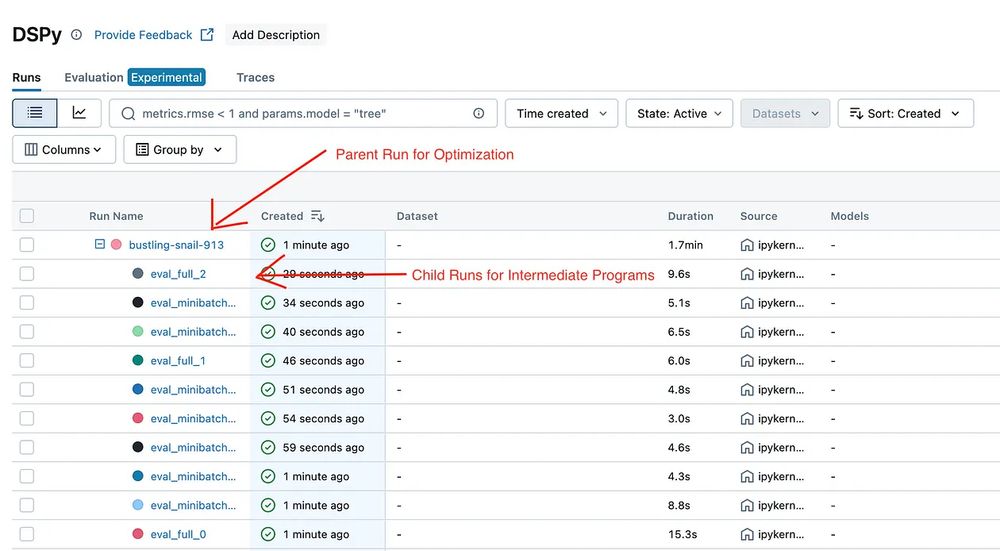
#MLflow is the first to bring full visibility into DSPy’s prompt optimization process. More observability, less guesswork.
Get started today! ➡️ medium.com/@AI-on-Datab...
#opensource
🔹 Explore the new MLflow + #DSPy integration
🔹 Learn how Cleanlab adds trust to AI workflows with MLflow
💬 Live Q&A + demos
📺 Streamed on YouTube, LinkedIn, and X
👉 RSVP: lu.ma/mlflow423
#opensource #mlflow #oss
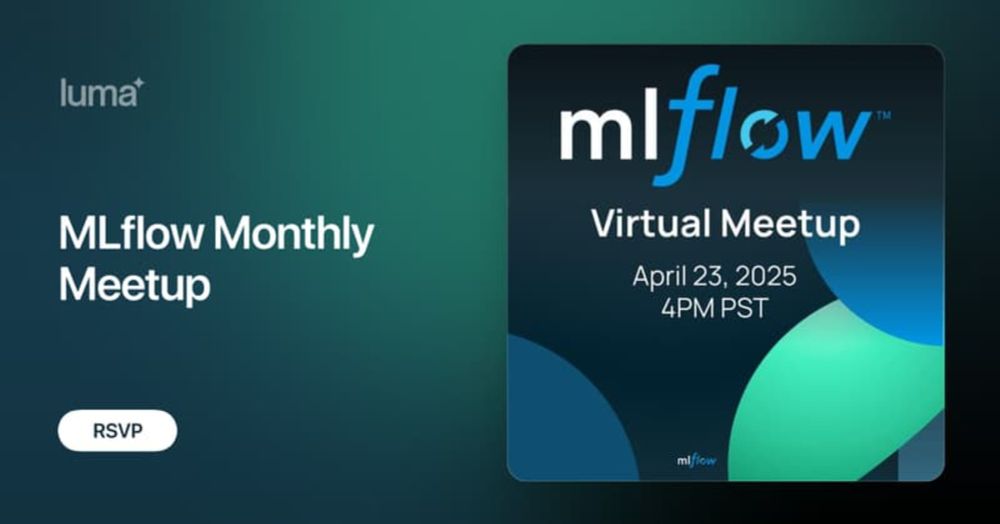
🔹 Explore the new MLflow + #DSPy integration
🔹 Learn how Cleanlab adds trust to AI workflows with MLflow
💬 Live Q&A + demos
📺 Streamed on YouTube, LinkedIn, and X
👉 RSVP: lu.ma/mlflow423
#opensource #mlflow #oss
LangProBe from Shangyin Tan, @lakshyaaagrawal.bsky.social, Arnav Singhvi, Liheng Lai, @michaelryan207.bsky.social et al begins to ask what complete *AI systems* we should build & under what settings
We find that, on avg across diverse tasks, smaller models within optimized programs beat calls to larger models at a fraction of the cost.
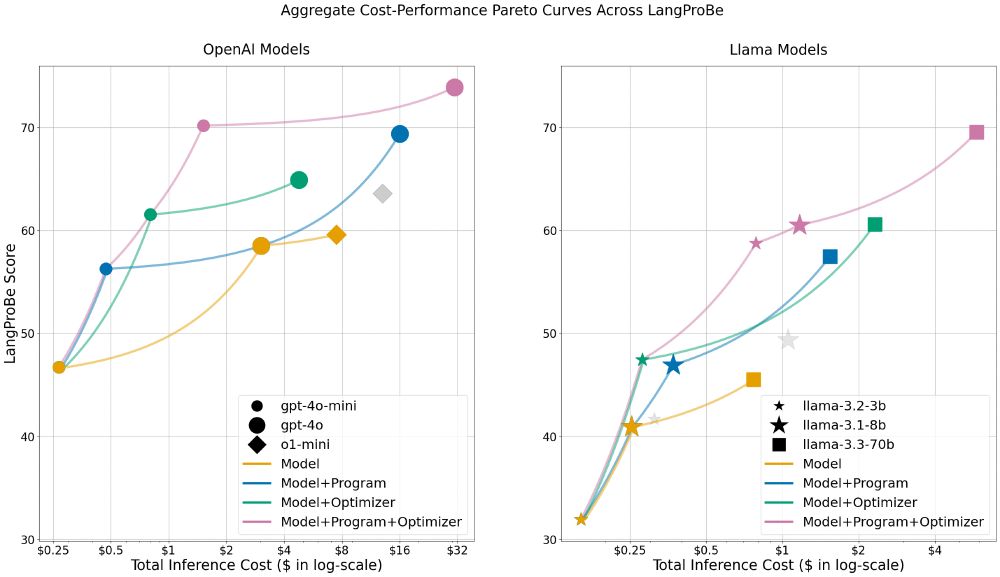
LangProBe from Shangyin Tan, @lakshyaaagrawal.bsky.social, Arnav Singhvi, Liheng Lai, @michaelryan207.bsky.social et al begins to ask what complete *AI systems* we should build & under what settings
We find that, on avg across diverse tasks, smaller models within optimized programs beat calls to larger models at a fraction of the cost.

We find that, on avg across diverse tasks, smaller models within optimized programs beat calls to larger models at a fraction of the cost.
It's not that they're not crucial for intelligent software. But it takes building many half-working systems to abstract successfully, and it takes good abstractions to have primitives worth composing.
🧵1/2
It's not that they're not crucial for intelligent software. But it takes building many half-working systems to abstract successfully, and it takes good abstractions to have primitives worth composing.
🧵1/2
**The mechanism is actually not about having multiple vectors at all.** You can see this in four different ways.
🧵1/7
**The mechanism is actually not about having multiple vectors at all.** You can see this in four different ways.
🧵1/7
surprisingly, not everyone was mean to him
surprisingly, not everyone was mean to him
Agents gone ROUGE.
Agents gone ROUGE.
Much like a good paper always starts with (i) the status of the field at the time of the proposal, (ii) what’s an annoying gap, and (iii) the novel intuition that motivates a new insightful proposal, a good course lecture must also situate every major concept this way.
[1/3]
Much like a good paper always starts with (i) the status of the field at the time of the proposal, (ii) what’s an annoying gap, and (iii) the novel intuition that motivates a new insightful proposal, a good course lecture must also situate every major concept this way.
[1/3]
The big insight in ColBERT is that we can encode each document upfront *not* into a vector, but into a rich scoring function, f: query -> float, which ... [1/3]
The big insight in ColBERT is that we can encode each document upfront *not* into a vector, but into a rich scoring function, f: query -> float, which ... [1/3]


